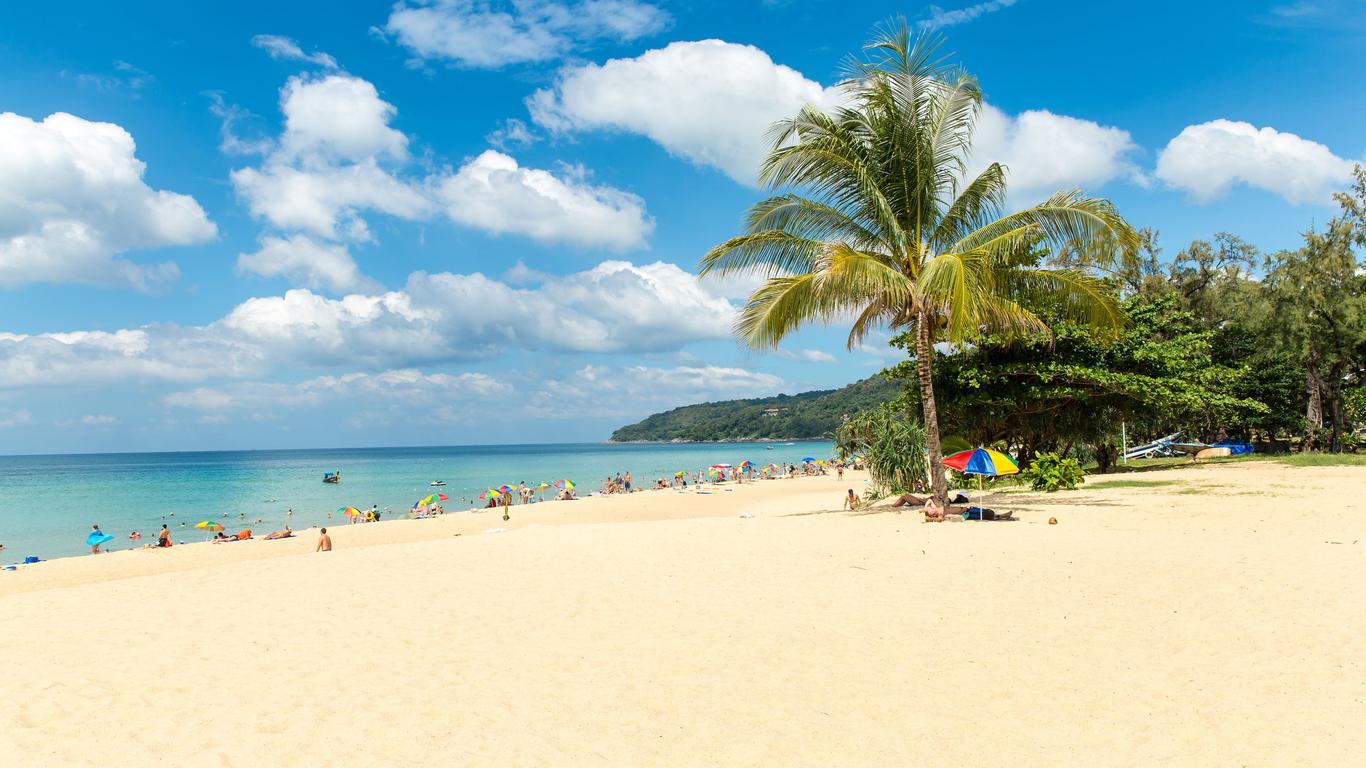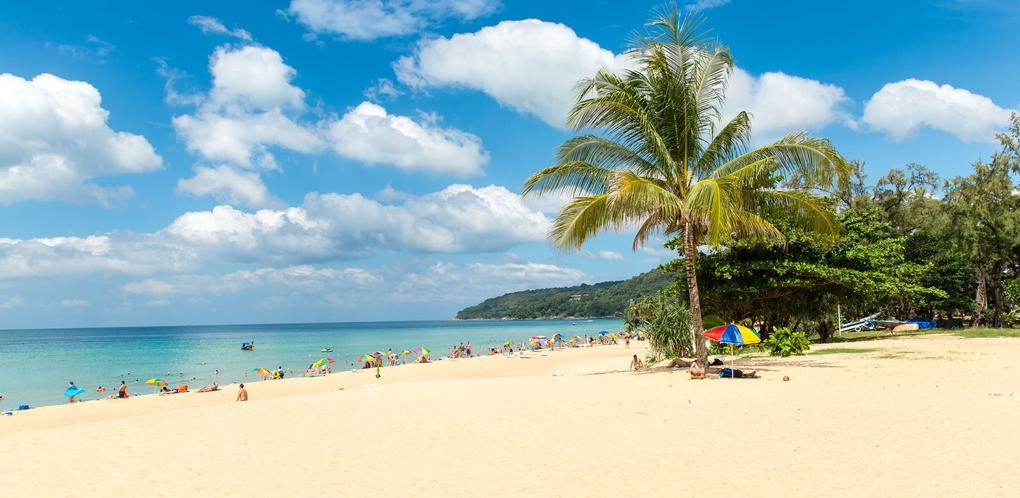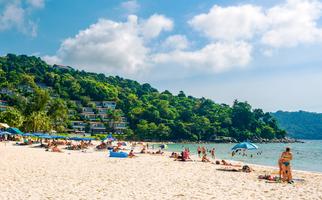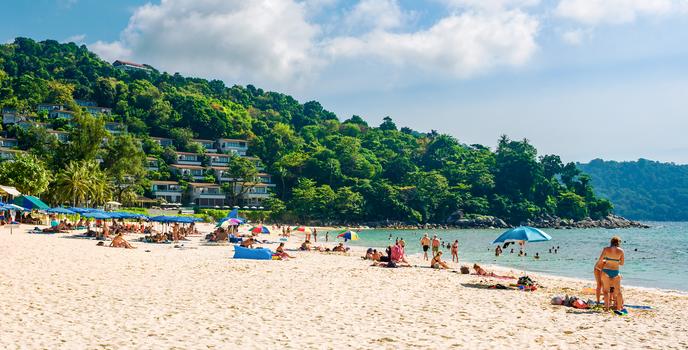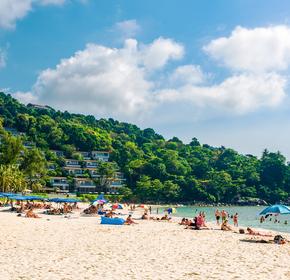1. Karon Beach: Phuket's Quintessential Destination
Chinese legend has it that the island province of Phuket in southern Thailand is a golden sea dragon, Hai Leng Ong, who is duty-bound to protect inhabitants and visitors with good health and prosperity. Drawn to its rich natural resources and later the tin mining and rubber trade that shaped its destiny, visitors have come to and prospered here for thousands of years. Graced with a mountainous backdrop, an ancient rainforest and the gentle sway of palms skirting its beautiful beaches, Phuket's exotic allure continues to draw millions each year - especially to the island's quintessential destination, Karon Beach. Located between the street hustle and girly bars of Patong and the quieter, more upscale Kata, family-friendly Karon is the happy medium: accommodations for all tastes, fabulous dining, great nightlife, amazing water sports and scuba diving - and room to spread out along three glorious miles of white, sandy beach.
2. Wat Suwan Khirikhet: Tranquility At The Beach
First-time visitors to Thailand are often struck by the friendly, respectful, easy-going nature of the Thai people, traits associated with the prevailing impact of the Buddhist philosophy. A quiet, meditative visit to a Buddhist temple, such as Karon's quaint Wat Suwan Khirikhet, is done out of respect and gratitude for the Buddha's teachings. Providing a dose of tranquility for all, the small but elaborately ornate Buddhist temple and its beautiful gardens are a short walk from the north end of the beach.
3. Kata Beach: Waves Worth The Paddle Out
While not nearly as spacious as the beach at Karon, nor as congested as the one at Patong, the laid-back resort town of Kata just south of Karon has some of the best shopping, dining spots, and day spas on the island. It also has Phuket's second most popular beach and the island's only regular surfing site, especially during the May-October monsoon season. Carved into two beaches by a jutting, rocky headland, Kata Beach and the more secluded beach of Kata Noi are as gorgeous as any strip of sand can be.
4. Karon Temple Market: Mouth-Watering Local Culture
The grounds of the Karon Temple become a bustling center of activity on Tuesday and Thursday when the Karon Temple Market opens for business with an array of stalls and vendors serving up souvenirs like flower-shaped soaps and Thai-inspired scarves, and regional southern Thai delicacies like spicy, pasted skewers of fresh shrimp, colorful crayfish salad and steaming bowls of mango-sweetened sticky rice. Probably a reflection of the accepting Buddhist nature, it's a street fair where hard sells and price haggling is virtually nonexistent.
5. Karon Viewpoint: One Perspective of Paradise
It's a postcard-perfect photograph anyone visiting Phuket will want to take: the Andaman Sea, sparkling like turquoise glass, hurling snow-white surf against the dazzling white beaches of Karon, Kata and Kata Noi from the lush, green perspective of the hills surrounding Karon Viewpoint. As spectacular in the early morning as it is romantic at sundown, this hillside perch above Kata Noi is accessed by a mountainous jungle road connecting Kata with Rawai.
6. The Big Buddha: Phra Putthamingmongkolekanagagiri
Not only is the Big Buddha sculpture of Phuket Island a sight to behold, it also perches on the hilltop with the most sweeping views of the region. It is a dwarfing yet serene experience to climb the steps up to the massive white marble figure, which can be seen from almost anywhere on the island. Finally reaching the 150-foot Buddha is unforgettable, and one of the greatest photo opportunities around to boot.
